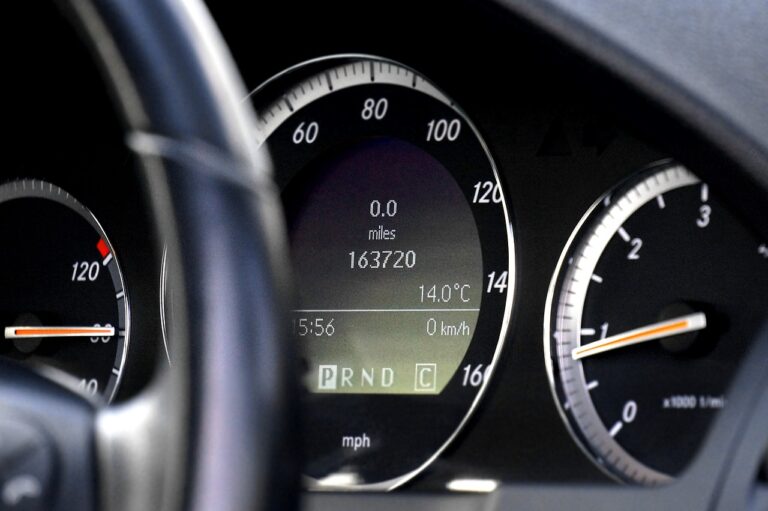Exploring the Impact of Automotive Air Conditioning on Vehicle Occupant Comfort During Long Journeys
cricket bet 99 login, sky11 live, reddy book id:Exploring the Impact of Automotive Air Conditioning on Vehicle Occupant Comfort During Long Journeys
Imagine you’re on a long road trip during the scorching summer months. The sun is beating down, and the temperature inside the car is rising steadily. Without the comfort of air conditioning, the journey can quickly become unbearable. This scenario highlights the importance of automotive air conditioning systems in ensuring the comfort of vehicle occupants during long journeys.
In this article, we will delve into the impact of automotive air conditioning on vehicle occupant comfort and explore the different factors that come into play. From the effectiveness of air conditioning in regulating temperature to the impact on fuel consumption, we will uncover the various aspects associated with this essential feature in modern vehicles.
Regulating Temperature for Optimal Comfort
One of the primary functions of automotive air conditioning is to regulate the internal temperature of the vehicle, ensuring that occupants remain comfortable regardless of the external conditions. During long journeys, especially in extreme weather conditions, the ability to maintain a consistent and comfortable temperature inside the car becomes crucial.
Air conditioning systems achieve this by cooling the air inside the vehicle, effectively lowering the temperature to a comfortable level. By circulating the cooled air through the vents, occupants can enjoy a pleasant environment throughout the journey, enhancing overall comfort and reducing fatigue.
Additionally, air conditioning systems are capable of adjusting the temperature according to the preferences of the occupants, allowing for personalized comfort levels. This customization feature ensures that everyone inside the vehicle can enjoy a comfortable ride, irrespective of individual temperature preferences.
Impact on Fuel Consumption
While automotive air conditioning systems play a vital role in maintaining occupant comfort, it is essential to consider their impact on fuel consumption. Air conditioning systems rely on the vehicle’s engine to operate, consuming fuel in the process. This fuel consumption can vary depending on several factors, including the temperature setting, driving conditions, and the efficiency of the system.
Studies have shown that using air conditioning at lower speeds has a minimal impact on fuel consumption, with the increase in fuel usage becoming more significant at higher speeds. Therefore, during long journeys where high-speed driving is common, drivers should be mindful of the fuel consumption associated with using air conditioning continuously.
To optimize fuel efficiency while maintaining occupant comfort, drivers can make strategic use of the air conditioning system. For example, rolling down the windows at lower speeds or utilizing the air conditioning in moderation can help reduce fuel consumption without compromising on comfort during long journeys.
Maintenance and Performance Considerations
To ensure the optimal performance of automotive air conditioning systems, regular maintenance is essential. Over time, the system can accumulate dust, debris, and other contaminants, impacting its efficiency and effectiveness. Therefore, periodic servicing and cleaning of the air conditioning system are necessary to maintain optimal performance and ensure occupant comfort during long journeys.
In addition to maintenance, the performance of the air conditioning system can be affected by various factors, such as the age of the vehicle, the quality of the components, and environmental conditions. Understanding these factors and taking proactive measures to address any issues can help enhance the performance of the system and prolong its lifespan.
Furthermore, advancements in automotive technology have led to the development of more efficient and eco-friendly air conditioning systems. These systems utilize environmentally-friendly refrigerants and employ energy-saving features to reduce fuel consumption and minimize the impact on the environment. By investing in vehicles equipped with advanced air conditioning systems, drivers can enjoy both enhanced comfort and sustainability benefits during long journeys.
Exploring Alternative Cooling Methods
While automotive air conditioning remains the primary method for regulating temperature inside vehicles, there are alternative cooling methods that can complement or replace traditional air conditioning systems. These methods include technological innovations such as climate-controlled seating, ventilated seats, and infrared heating systems, which aim to enhance occupant comfort and provide a more personalized driving experience.
Climate-controlled seating, for example, utilizes built-in heating and cooling elements in the seats to regulate the temperature for individual occupants, offering a more customized comfort solution. Ventilated seats, on the other hand, use fans to circulate air through the seat cushions, providing a cooling effect without the need for traditional air conditioning.
Infrared heating systems are designed to target specific areas of the body, such as the neck and lower back, providing localized warmth during colder weather conditions. By incorporating these alternative cooling methods into vehicles, manufacturers are offering drivers and passengers more options to tailor their comfort preferences during long journeys.
FAQs
Q: Can automotive air conditioning systems impact the performance of the vehicle’s engine?
A: While air conditioning systems rely on the vehicle’s engine to operate, the impact on engine performance is minimal in modern vehicles. However, drivers should be mindful of fuel consumption when using air conditioning, especially at higher speeds.
Q: How often should automotive air conditioning systems be serviced?
A: It is recommended to service air conditioning systems annually to ensure optimal performance and efficiency. Regular maintenance, including cleaning and inspection of components, can prolong the lifespan of the system and enhance occupant comfort.
Q: Are there eco-friendly alternatives to traditional automotive air conditioning systems?
A: Yes, advancements in automotive technology have led to the development of more eco-friendly air conditioning systems that use environmentally-friendly refrigerants and energy-saving features. These systems reduce fuel consumption and minimize the impact on the environment, offering a sustainable solution for vehicle occupants.
In conclusion, automotive air conditioning plays a crucial role in maintaining occupant comfort during long journeys. By regulating temperature, optimizing fuel consumption, and exploring alternative cooling methods, drivers and passengers can enjoy a comfortable and personalized driving experience. With advancements in technology and a focus on sustainability, automotive air conditioning systems continue to evolve, offering innovative solutions for enhanced comfort and efficiency on the road.







